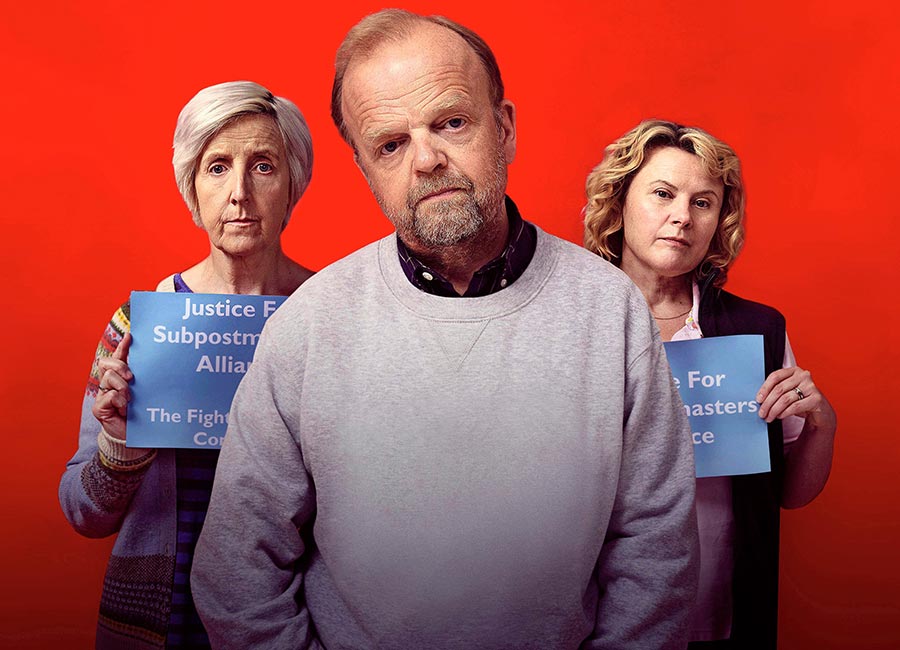The possibility of a bid for ITV has perked up a lagging share price, writes Alex Brummer.
Even so, as a creative enterprise, Britain’s leading terrestrial broadcaster looks hugely undervalued.
Consider this. Almost every leading show on the small screen at present has origins in ITV Studios. The list includes the BBC series Ludwig starring David Mitchell, the Netflix hit Fool Me Once and Disney’s Rivals as well as the politically explosive Mr Bates Vs The Post Office.
The biggest changes at ITV since Carolyn McCall took the helm in 2018 are the group’s income streams.
Revenues from ITV Studios and streaming service ITVX climbed from 45pc to 60pc and are expected to hit 66pc by 2026.
If one were to price ITV Studios on the same multiple as All3Media, sold to RedBird IMI in May of this year, it would be worth £3bn plus.
That is more than the whole of the broadcaster, which is valued at £2.5bn following the latest 8.6pc rise to 71.15p in the group’s shares.
If a bidder were to emerge, it would gain control of a broadcasting platform, with an ability to attract large scale audiences and linear advertising to match, for nothing.
ITV is a bellwether for the UK and has suffered in recent years from the same shocks as the rest of Britain – the great financial crisis, Covid-19 and the Ukraine war.
Prospects in recent months have been damaged by the lengthy interregnum between Labour’s election and the Budget.
Both have caused large scale business advertisers to curtail plans.
There are few better ways of reaching a large scale audience than ITV.
I’m A Celebrity Get Me Out Of Here has been drawing audiences of 9m.
Perpetual favourites such as Coronation Street are gold dust for advertisers.
So far, no observable change in ITV’s share register has been seen.
The biggest holding of 10.45pc is held by John Malone’s spawling media empire Liberty Global.
He and his shrewd lieutenants would not want to see ITV sold on the cheap.
Activist investors on the register such as Redwheel and Silchester might take a different view.
There must be the possibility that someone might want to see studios spun off as a means of releasing value.
Private equity outfit CVC, mentioned as a bidder (there has been no approach), might want to get its hands on some of the sports rights.
Buying ITV is not as straightforward as it might seem.
The group’s licence, valid until 2034, contains obligations.
These include generating output in the UK regions and devotion of airtime to news bulletins.
Most importantly, however, the loss of ITV’s independence would be a blow to creative Britain.
This, just at the moment when the Labour Government has remembered that it is a sector which excels and is ready for growth.
The most shocking aspect of the Barclays agreement to pay a fine of £40m to the Financial Conduct Authority (FCA), over the bank’s Qatar fundraising in 2008, is the time it has taken to dish out the discipline.
Excuses can be made for the delays, including the parallel prosecution by the equally useless Serious Fraud Office (SFO), but white-collar justice which takes 16 years is a waste of space.
Since then, the Barclays board has been replenished and the bank has had to ride out another crisis over the connection of former boss Jes Staley to the late sex offender Jeffrey Epstein.
In balance sheet terms, the payout is a rounding error.
Britain’s system of financial enforcement is woeful. An excoriating report by MPs and the Lords accuses the FCA of being “incompetent at best, and dishonest at worst”.
Instead of delivering swift and firm white-collar justice, the SFO finds itself with multi-million pound legal costs over the bungled prosecution of Eurasian Natural Resources Corporation (ENRC).

Such humiliations have made British financial justice a laughing stock.
Anglo American is demonstrating that self-help is preferable than selling to a big overseas rival which would have crushed culture and ambition.
The sale of its remaining steel making coal mines in Australia to Peabody Energy, once part of the UK’s Hanson conglomerate, frees up £3.1bn for investment in copper and other enterprises.
De Beers next?










